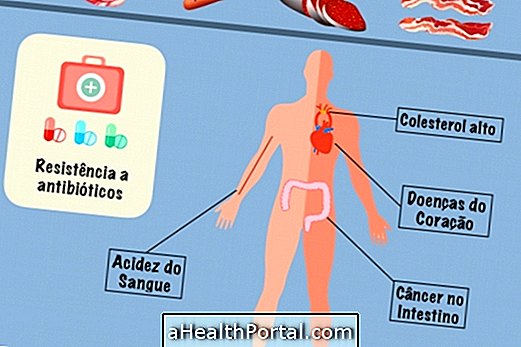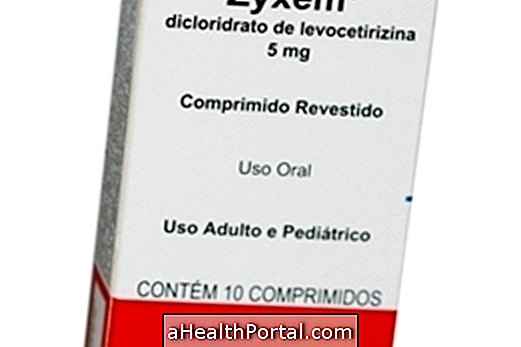The complications of bulimia, such as hoarseness due to gastric reflux, inflammation of the esophagus and cavities and tooth wear, occur mainly due to the induction of vomiting, which in addition to food also expels present acid from the stomach.
Thus, constant contact of the esophagus, throat, mouth, and teeth with gastric acid causes lesions and wounds that will only heal when the disease is controlled and vomiting stops.
So, know what to do to help treat each complication during the treatment of bulimia according to each symptom:
Reflux and wounds in the esophagus
Reflux appears due to repeated induction of vomiting, which weakens the lower esophageal sphincter, which is the structure responsible for preventing the contents of the stomach from returning to the esophagus.
Thus, to aid in the treatment can be used medicines that diminish the acidity of the stomach and stimulate the digestion, like Omeprazol and Plasil. Also, avoiding drinking liquids during meals and using home remedies like ginger tea are also measures that help control reflux. See more about treatment here.

Dehydration
Dehydration is common in the practice of frequent vomiting and use of laxative and diuretic medications, causing the body to lose a lot of water and minerals such as potassium, which are important for blood balance and for the functioning of muscles and kidneys. Look at the symptoms of dehydration.
Thus, it is important to drink at least 2 liters of water per day and give preference to liquids containing vitamins and minerals, such as natural fruit juices, coconut water and isotonic drinks.
Swelling of the cheeks
The swelling in the mouth and chin usually is linked to the enlargement of the parotid glands, which are a type of salivary glands that end up growing according to the amount of times vomiting is triggered.
To reduce swelling, treat bulimia, normalize the acidity of blood and mouth, and prevent vomiting, so that the gland stops being over-stimulated and back to normal size.
Deterioration of teeth
It is common for bulimia to make the mouth, tongue and throat dry and painful, as well as increasing the risk of tooth decay and sensitivity, which also end up becoming deformed in the most severe and prolonged cases of the disease.
To treat, you should rinse your mouth with sodium bicarbonate after the episodes of vomiting, and seek a dentist who will treat cavities and other diseases in the mouth, and prescribe mouthwashes or fluoride-based gels, the use of a device that protect your teeth at the time of vomiting.
Also, it is important to drink plenty of water to keep your mouth hydrated and avoid brushing your teeth soon after vomiting as this worsens the corrosion of the tooth enamel.
Chronic constipation
Overuse of laxatives causes the bowel to become lazy and stop working properly, being difficult to evacuate without the help of medications.
In these cases, it is important to talk to the doctor to assess the severity of the problem, as in some cases it is necessary to take medications or have surgery to correct changes in the bowel.
In addition, one should eat a diet rich in fiber, vegetables, and seeds, and drink plenty of water to facilitate bowel movement, preferably under the guidance of a nutritionist to avoid complications.

Absence of menstruation
Changes in the menstrual cycle or the absence of menstruation can occur due to lack of nutrients in the body and the decrease in hormones that regulate the woman's reproductive system.
This problem is usually solved only when the patient returns to normal food and is well nourished, so that the production of hormones returns to normal, reactivating the menstrual cycle.
Depression and mood swings
Mood swings and depression are common in patients with bulimia, and are problems that should be treated with medical monitoring, which may prescribe antidepressant medications, and psychotherapy, will help the patient to improve their self-esteem and to have a new attitude in relation to food.
At this point it is important that the patient receives the support of family and friends to overcome the psychological disorders brought about by the disease, being important their participation and incentive to the treatment.
Insomnia
The insomnia mainly stems from mood swings, hormonal changes and constant concern with weight and nutrition.
To improve sleep, one can use medications prescribed by the doctor and take calming teas at night, such as the lemon balm and valerian. Also, it is important to have a wake-and-sleep routine, avoid napping during the day, and avoid drinking caffeinated beverages from 5:00 p.m., such as coffee and cola. See other tips here.





















